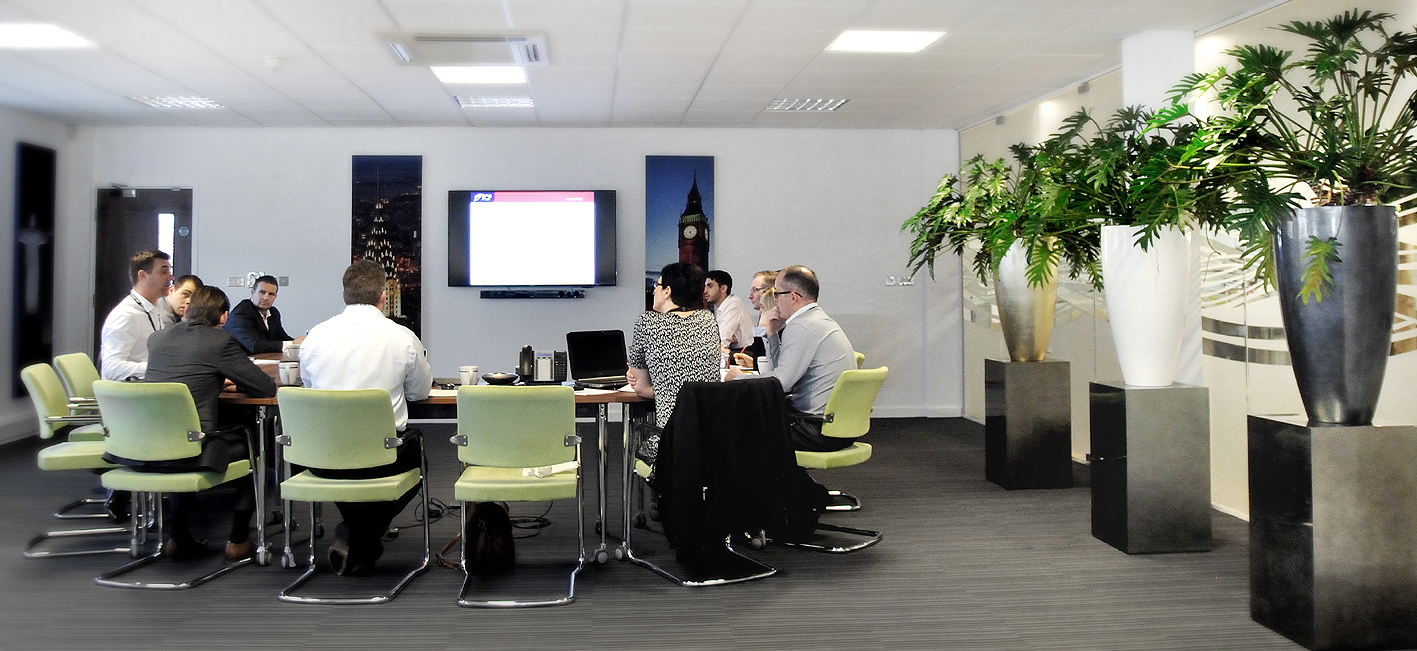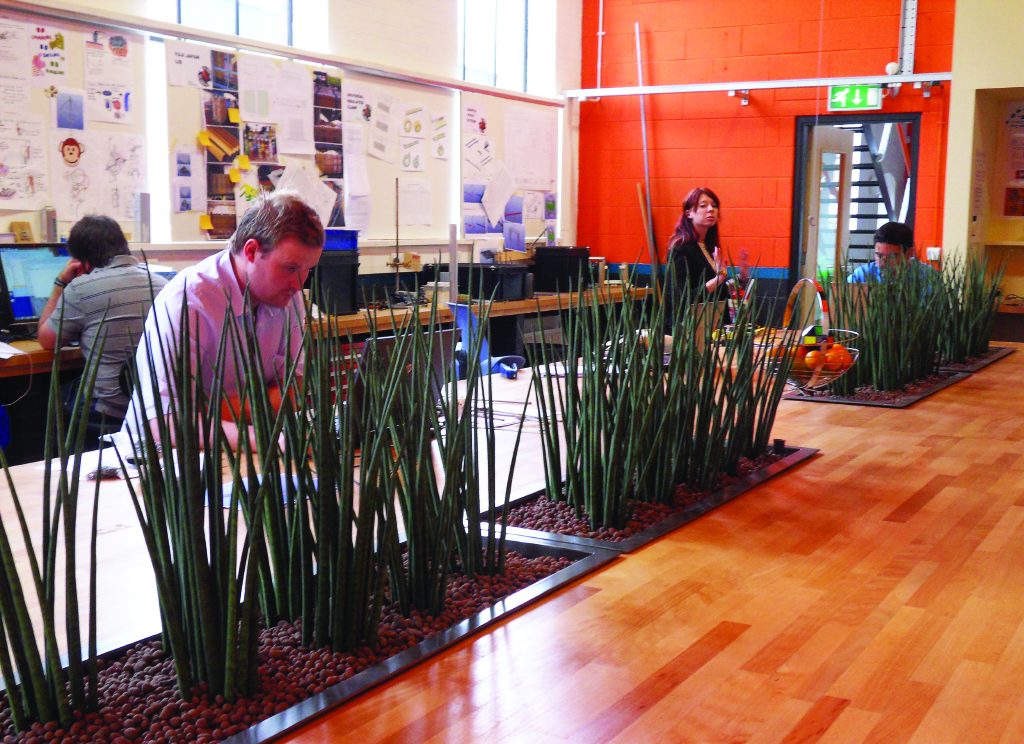
Office plants and the business case for a happy, healthy workforce.
A business has many financial challenges and among these, staff illness and turnover can be a huge cost, so why not invest a little into making the workplace a happier, healthier place for employees and save a larger costs in the long run?
It is estimated that the average UK worker spends over 1,647 hours a year at work.
That’s not a number that lifts the spirits of most people, I imagine: More likely it would make them wonder what more enjoyable things they could have been doing in all that time.
For some of us, this is just because work generally isn’t the most fun you can have in a day, but for others, the reasons can be more serious. Factors such as pressure, stress and work dissatisfaction can play a large part in making the workplace a less than desirable place to spend a significant chunk of your life.
A recent Health and Safety Executive report found that stress accounted for 45% of all working days lost in the UK during 2015-16 due to ill health; a considerable amount, and for something which could be avoided in many cases.
Work is a fact of life for most adults and although we do need to spend a good deal of time being there, the workplace doesn’t have to be a place to dread entering every morning. Yes, serious physical and psychological issues need professional attention, but there are simple ways to make the workplace calmer, more productive, welcoming and a place where illnesses occur less often.
If you consider the cost of staff absences due to illness over a year, as well as the cost of replacing staff (recently calculated to be around £4 billion a year for UK businesses in total), there is a compelling argument for investing a little in staff wellbeing and happiness.
Give thanks
Last week, I read that over half of workers in the UK say that they would prefer to be thanked by their managers as and when they do good work, rather than receive a single annual event for recognition such as work anniversaries, performance reviews, or company events. In fact, almost half would leave a company if they didn’t receive regular recognition for their work.
What’s more, a huge 84 per cent of workers think managers and leaders should spot good work and give praise and thanks whenever it happens and the majority (80 per cent) think this should happen on a continuous, all year round basis.
Despite this, the majority of the £35.6bn a year that companies spend on employee recognition is instead focused on rewarding tenure, through long service awards, for example. Moreover, 40% of the senior decision makers polled said they don’t think regular recognition and thanking staff has a big impact on retention.
The research comes from Reward Gateway, an employee engagement company, which surveyed 500 employees and 500 senior decision makers.
This strikes me a simple, and low-cost, way of boosting morale, and probably, performance and retention, among the workforce, and other surveys have highlighted other cost-effective changes to working practices which may improve staff satisfaction.
Growing healthy staff
Many surveys we have seen, as interior landscapers, have shown that many employees would feel happier in an office which seems cared for, and this includes having office plants around the place. Perhaps they subconsciously feel, as research has proved, that people feel happier and are more productive around plants. Incidents of stress, sore throats and headaches can also decrease when plants are in sight of the desk.
Some of this is psychological: biophilia is the term we use to describe our innate need to keep connected with nature; but also office plants work to clean the air of toxins and dust as well as improve humidity levels, so there is also a physiological reason why we feel healthier near office plants.
The worker-at-large
According to a survey by business communications company Fuze, 80 per cent of workers do not think they need to be in an office to be productive and 85 per cent want the opportunity to work from home. Other desired places to work included a cafe and, even, in bed!
Not all of these scenarios may be practical for all businesses, but there is a growing call for flexibility in working to help employees to achieve a healthier work/life balance, and perhaps even engender a better quality of work output.
Certainly, there is research to prove that working with a view of office plants or nature in general can increase concentration, information retention, creative thinking and productivity, not to mention improving a sense of well being.
Taking all this into account, a small investment in office plants or even letting people work outside when it’s fine, or from the garden office, may pay dividends for your business in the long run.
We are currently running a campaign to raise awareness of the strong business case for having plants or views of nature in the workplace. Called ‘The Value of Plants‘, the campaign highlights how using plant displays in the office can help reduce the costs of staff illness, stress and replacement, thanks to their ability to remove harmful toxins, balance humidity and give us a psychological boost by reconnecting us with nature.
Staff wellbeing is a growing issue, and we believe that plants can play their part in ensuring businesses have a happy, healthy and productive workforce.

